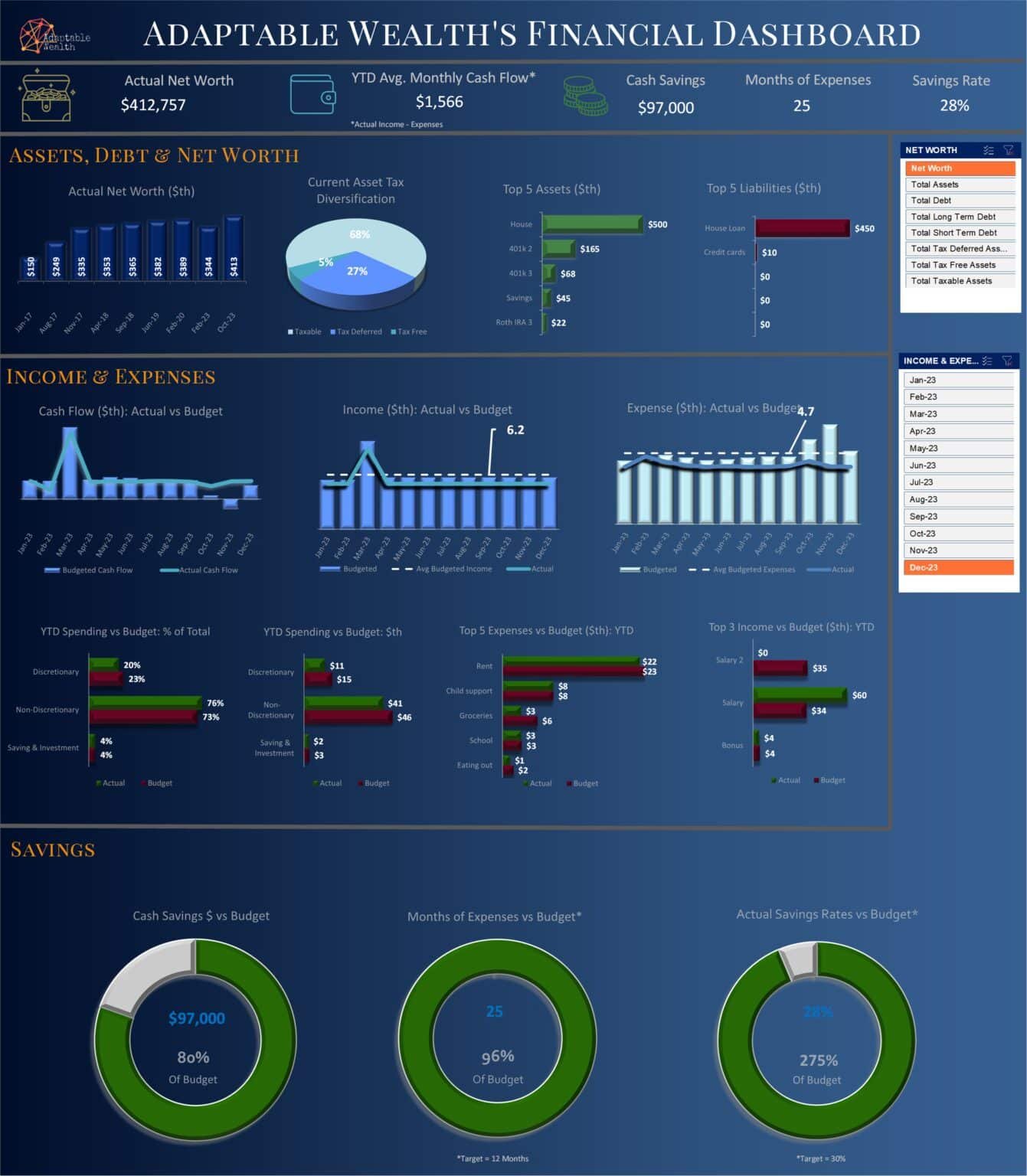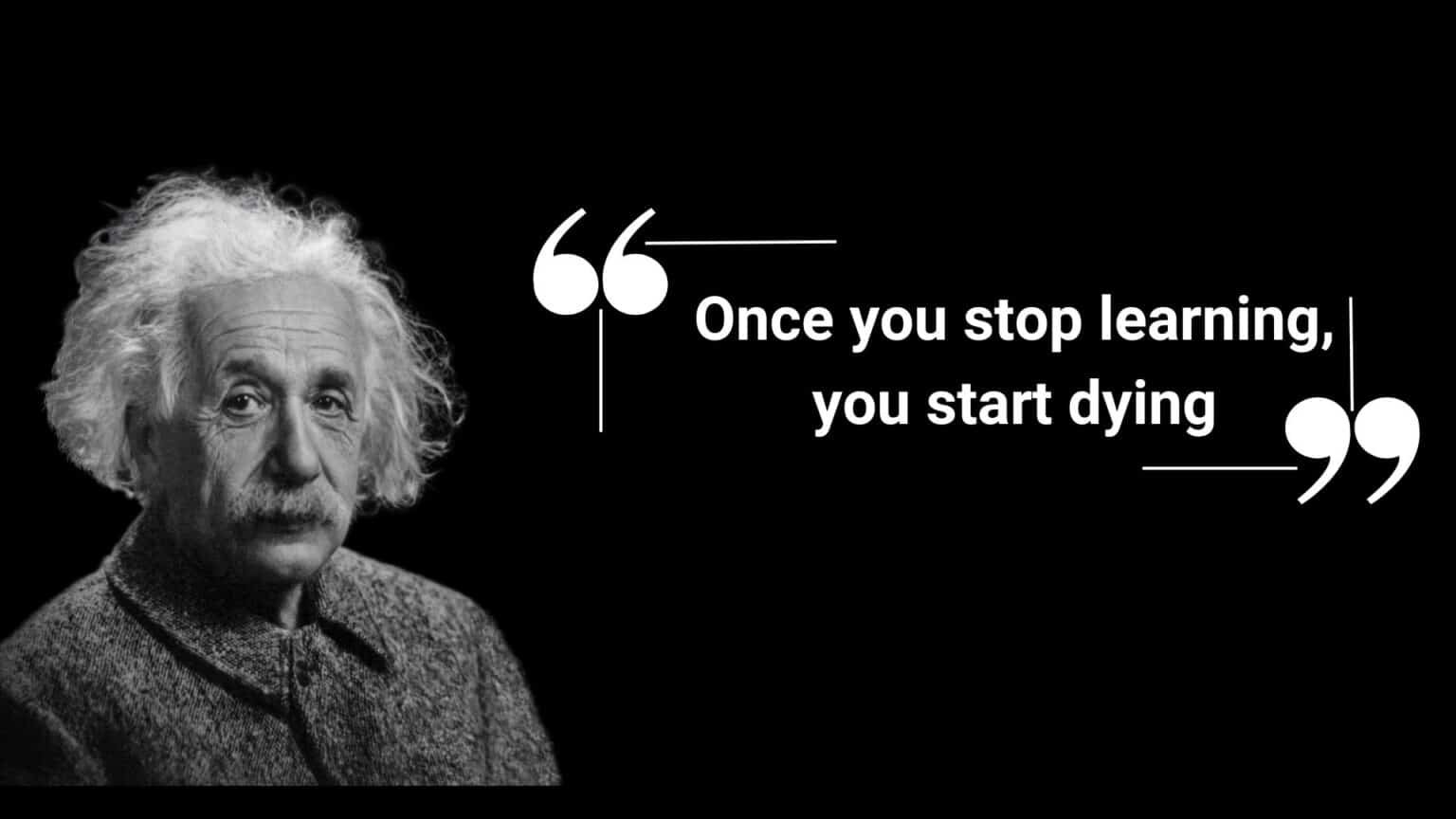

We’re in the midst of the most anticipated recession ever and I’m sure you’ve been hearing a lot about it. The truth is, nobody ever knows for sure if we’ll officially enter a recession or not. Still, with banks failing, wars popping off & 16% inflation over the past 2 years, it appears to be a damn good time to revisit how to prepare for a recession.
Don’t wait until it looks like the economy is in shambles to take these 8 important steps. Everyone should be constantly working on them because they’ll help you position yourself for growth & opportunities regardless of the economic landscape. It’s literally a win-win.
Key Points
- The 8 ways to prepare for a recession
- Emergency fund up to 6 months of living expenses
- Put together a budget
- Create a job loss plan – What exactly will you do if you lost your income?
- Step it up at work
- Test the job market – Practice interviewing
- Diversify your income – start a side hustle or business
- Proactively network
- Always be building your skills
Don’t wait. Start now. You’ll position yourself for growth & opportunities if you do lose your job or even if you don’t.
First, you need to focus on getting your finances in order while you’re still employed, or business is good. There’s the ole adage that it’s wise to prepare in good times for what awaits you in bad times.
Emergency Fund
The first thing you’re going to do is start building an emergency fund up to 6 months of living expenses. I can’t stress enough that this is THE MOST IMPORTANT STEP you can take right now to prepare for a recession. Start saving as much as possible. I personally target 25% of my gross pay but even 5-10% is better than nothing.
If you already started but don’t have 6 months yet, just keep doing what you’re doing. If you don’t have anything saved, start immediately with whatever you can afford. It would be wise to cut any expenses you can so you can save more. Having a few thousand dollars saved can be the difference between living in your car & having a roof over your head.
Once you have some sort of saving on auto pilot, it’s time to figure out where your money is going. In other words, you need to put together a
Budget
A budget not only helps you understand where your money is going, it helps you determine exactly how much you can save out of each paycheck. It also helps you stay grounded when you see that shiny new product in the store. Furthermore, it’s a roadmap for your financial plans & to some extent your life plans.
If you’re flying blind without a budget, it’s more likely that your financial plans will end in failure.
You may be tempted to try one of the shortcuts out there. Sure, they’re better than nothing, but they’re not real budgets. You’ll be much better off doing a full detailed budget if you’re ready to take control of your financial future.

Once you have your baseline budget ready, which assumes you retain your job for the entire period, it’s time to determine what expenses you would cut if you lost your income.
Budget for a Recession (Create a Job Loss Plan)
This is literally a 2nd budget. It details all the steps you’ll take to increase your income & reduce expenses. Make sure to factor in any severance, unemployment benefits, side hustle income etc. that you would receive.
Take your time to think deeply about what you’d do if you did lose your job. Once you go through this process & seriously think & plan for the loss of an income, you start to feel the stress & fear of a recession melt away. Not only do you have some money put away in an emergency fund, but you also have a plan. You know exactly what you’re going to do the second you’re laid off.
If something does happen, take the steps you’ve outlined immediately. Don’t wait around. Be aggressive with your cuts & don’t waste any time. You can always get the tv back on, increase your phone plan back to what it was, & go back to the gym, but you can’t get that money back after it’s spent.
Now that you have contingencies in place, it’s time to focus on keeping your income flowing.
Step it up at Work
Stay focused (put your phone away) & productive the entire workday. Show them that you are valuable & worth keeping around even if you may be one of the more expensive employees.
Another way to make yourself more valuable is to volunteer for side projects that add value for your boss’ boss. You want to make yourself visible to as many people who make decisions as possible. This way, even if your boss doesn’t vote to keep you, there’s a chance that someone higher up will.
Next, you’re going to want to
Test the Job Market
Update your resume & start sending applications out. The purpose is not to immediately find another job, but to get some practice interviewing while you’re still employed. Of course, if you get an offer that makes sense (financially, career-wise, it fits with your life etc.), take it.
Sure, it’ll take some time & effort at first. But after 5 or so interviews, you’ll be dialed in with good answers to all their lame questions like “tell me about your weaknesses” or “where do you see yourself in 5 years”.
You’ll have the answers down & be much more prepared for the great jobs when they come up.
In fact, twice a year, I send out applications just to see what is out there. It allows me to see if anything has changed in the interview process, & to stay sharp in my delivery.
The 3rd way to keep your income flowing is to
Diversify Your Income (Side Hustle or Busines)
Diversifying your income is one of the most powerful things you can do for yourself & your family. Not only financially but for peace of mind as well. Should you lose your job, at least you haven’t lost 100% of your income.
In fact, the avg millionaire has 7 different streams of income including:
- Job
- Business/side hustle
- Real estate rentals
- Stock dividends
- Bond/loan interest and more
Once you have your financial house in order & you’ve taken steps to keep your income flowing, you want to start making investments that will support those first two goals. You can do this by
Proactively Networking
Too many people think that networking is adding as many people to your connections as possible on LinkedIn or Facebook. That’s a step in the right direction but there’s a lot more to it than that.
Networking is about building real relationships not just schmoozing with people online. And to develop true relationships, you must meet people in person at events like job fairs or networking events. To build a relationship, you should promote their materials, vouch for them in terms of the skills they have, introduce them to people that you think they’d benefit from & so on.
In other words, make the effort to actually get to know them & go out of your way for them. They should be willing to do the same for you. This can be a huge plus when you’re looking for your next opportunity.
The 8th & final step to prepare for a recession is to

Always be Building Your Skills
First and foremost, you should be focusing on the skills required for your profession. You should be on the leading edge of what is possible & what is in demand in your industry. This is the primary way to guard against any decrease in income.
If you’re constantly on the leading edge of the knowledge & skills in your area of expertise (& you demonstrate this to those who make decisions), there is a much better chance that you’re seen as someone who must be kept at all costs.
Once your skills start deteriorating versus your competition, it’s the beginning of the end. Eventually your skills will be obsolete and along with it, your employability.
You should also be improving your skills in the areas of your hobbies as well. Let’s say you are laid off. If you’re like most people who earn a wage, you didn’t really like your job any way. If you had an opportunity & the means, you would go do something entirely different. Provided you took care of the 1st 3 steps outlined earlier in this article, you’re suddenly in a position of power. Power to choose what your next steps will be.
Those who have no savings & or job loss plan, tend to freak out if they lose their job. They go find anything to keep their finances & life from spiraling out of control. But not you. You have the luxury of taking a moment to reassess what you really want to do & how you’re going to do it. If you’ve been building your skills, you can leverage that into a business so you can build the life that you’ve always wanted to, or you can take your time finding your next job.
Either way, you have taken control of your circumstances. Now you sit in a position of freedom & power to choose what you want rather than it being dictated to you.
Well, those are the 8 ways to prepare for a recession. With them, you’ll position yourself for growth & opportunity. You’ll be able to capitalize not only if you do find yourself unemployed, but even if a recession never transpires. It’s literally a win-win.
And don’t wait around to implement these steps. Get started now. You’ll be glad you did. If the many economic indicators are right, we’ll see rising unemployment within the next year. And if it doesn’t, you’ll still be way ahead of 90% of the world.
Get Our Latest Delivered To Your Inbox
You will receive 1-2 emails per month and you can unsubscribe at anytime











